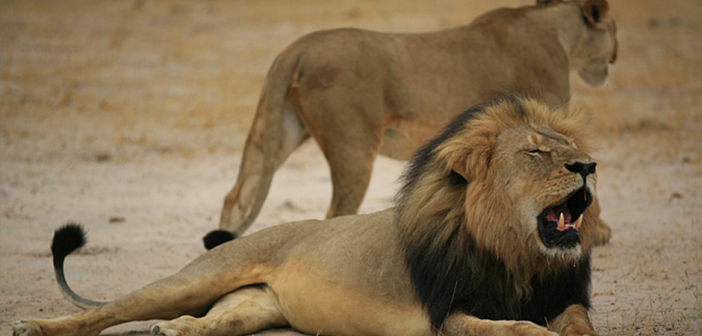Can killing an animal help preserve its species?
Proponents of trophy hunting certainly seem to think so. The argument goes a little something like this: trophy hunters pay a lot of money to go on these hunts, and that money goes towards conserving the species and ensuring that the populations remain stable. Or at least stable enough to keep the hunters hunting.
If it seems a bit counterintuitive, that’s because it is. It’s an argument that is frequently tossed around by hunters, governments and safari clubs, but with little evidence to support it. Now, almost a year after the death of Cecil the Lion at the hands of a trophy hunter brought widespread attention to this issue, the House Committee on Natural Resources released a report that undermines the validity of this claim.
The report, wittily titled “Missing the Mark,” examined five endangered species — the African Elephant, African Lion, Black Rhinoceros, Southern White Rhinoceros, and Leopard — that are regularly trophy hunted in four African countries. The findings poke several holes in the “kill an individual to save the species” argument
On the whole, trophy hunting is having negative effects on populations of endangered species. Unsustainably high rates of hunting have caused population declines in African Lions and Leopards. Hunting areas are often fenced in, which fragments habitat and disrupts natural migrations. Hunting and poaching of wild elephants is outpacing the species’ reproductive rate. Most populations can support some level of hunting so long as they aren’t facing other threats. The problem is, the species that suffer the most from trophy hunting are facing significant other threats. With habitat loss and poaching accelerating species decline, it is hard to justify removing even more individuals from the population.
It’s true that big game hunting draws in a lot of money. Your average trophy hunter is not your average hunter. Those pursuing lions and elephants must have money to burn on the cost of airfare, lodging, guide services and import permits. But is money alone enough to sustain these heavily hunted species?
The report found that there is no guarantee that any of the revenue generated through trophy hunting will be directed into conservation efforts. Conservation programs are only as effective as the governmental organizations responsible for managing them, and the countries where the most trophy hunting occurs have high levels of corruption. Zimbabwe and Tanzania consistently rank on the bottom of government corruption indices.
The high cost of trophy hunting also puts a high expectation on hunters to return with something to show for their efforts. This can drive guides to take rash or illegal decisions, and there have been reports of baiting or drugging animals, using vehicles and artificial lights, and hunting in small enclosures.
The US Fish and Wildlife Service is responsible for regulating the import of the trophies and, as Americans import more trophies than any other country, they have an important role to play in managing sport hunting. Their criteria for import permits allows only trophies that “enhance the propagation or survival of the affected species.” However, loopholes have allowed some endangered species trophies to be imported without a permit. From 2010 to 2014, the FWS required only one endangered species import permit, despite the fact that more than 2,700 permit-eligible trophies were imported during that time.
With the publishing of this report however, supporting arguments for trophy hunting have been seriously brought into question. Hopefully this will be a step in the right direction towards exposing the cruel and unsustainable nature of trophy hunting, so that we can redirect attention to real, positive conservation efforts.






